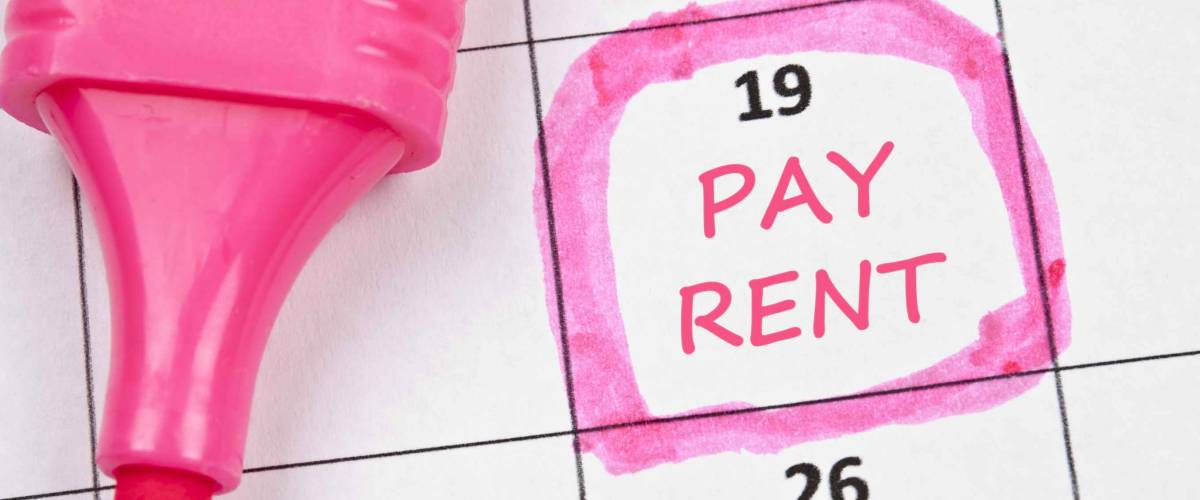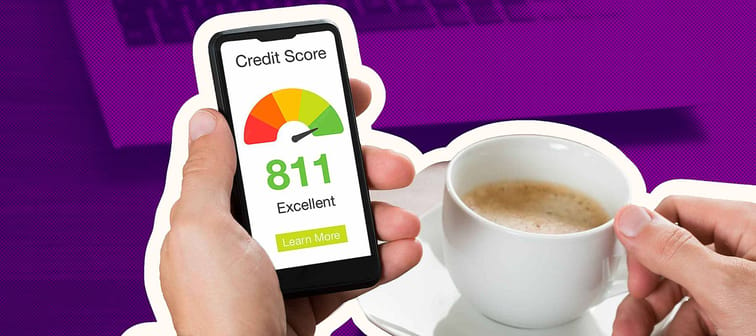Get your credit score and history

If you have no credit history, you can skip this step. But if you’re trying to improve a low or damaged score, you first need to know where you stand.
Start by checking your credit score: Here’s how to do it for free. Your credit score is essentially your entire credit history summed up in one number. To chart your progress, you need to know your baseline.
You’ll also want to request a full credit report from at least one of the big three reporting agencies — Experian, Equifax or TransUnion.
You can access a free copy of your credit report from each agency once per year at AnnualCreditReport.com.
To save money, it usually makes sense to check your report from one agency at a time. That way you can spread your free reports throughout the year to monitor your progress.
Your credit report will show your entire credit history, including the status of all your open credit accounts and other public records.
You need to make sure all of this information is accurate. Trying to build a credit score with a harmful error on your report is like climbing a mountain with a 50-pound rock in your backpack. No matter what credit-building strategies you use, the error will work against you.
If you see an error in one of your reports, you can dispute it by mailing a letter to the credit bureau reporting the error. Here is a complete guide on how to dispute a credit report error.
Scammers are smarter than ever—are you protected?
The average American gets 2 scam calls and 3 scam texts every week. Think you can spot them? AI is making scams harder to detect, and in 2023 alone, Americans lost $12.5B to cybercrime. Don’t be next—learn how to protect yourself now!
Learn moreHow to build credit without a credit card

Many people assume that you need to have credit cards to build credit. This couldn’t be further from the truth.
Whether your score is too low to qualify for a credit card or you just don’t want one, here are five strategies you can use to build credit without a credit card.
Utility bills
Normally, your utility payments aren’t included in your credit reports. This is a bummer because payment history is the most heavily weighed factor in calculating your credit score.
Or at least it was a bummer. A new service called Experian Boost is helping to change things. You can now automatically include utility bills, cell phone and internet bills and even Netflix payments in your credit report. It’s free to sign up, and the average user sees a 13-point boost to their FICO score (though results may vary).
This service reports only positive payments to the credit bureaus, so if you’re late on a payment, it won’t hurt your score.
Get a credit-builder loan

Credit-builder loans are a unique way to build credit without a credit card. Instead of strengthening your credit history by borrowing and spending money, you strengthen it by saving money.
A credit-builder loan is like a “training wheels” loan that allows you to prove your ability to repay money in a low-risk environment. When your credit score increases, you’ll be prepared to take the training wheels off and take on a real loan.
Think of it as a traditional loan, but in reverse. With a traditional loan, you receive a lump sum that you repay in installments over time. With a credit-builder loan, you don’t get access to the money until after you pay off the loan.
Your financial institution deposits the loan money — usually up to $2,000 — into an account, and you make monthly payments until the loan is paid off.
By the time you’re finished, not only will you have strengthened your credit history, but you’ll also be left with a nice chunk of savings you can use for an emergency fund.
You can take out credit-building loans from credit unions, community banks or through dedicated products.
Keep in mind that you still have to pay interest on your loan and often an application fee as well. Some of these costs can be offset by interest built into the savings account where your loan is deposited, but in the end, you will end up paying for this credit-building service.
Student loans

If you’re heading out to college, odds are student loans will be part of your future.
Many students try to avoid loans by using scholarships or grants or working part-time jobs. But if you have to take out a loan, it’s not the end of the world.
You can even look at it as an opportunity.
Credit checks aren’t required for most federal loans, which means they’re a great way to start building credit from scratch. Not only will making on-time payments every month build your score, but adding a student loan to your credit history will also help your credit mix.
Taking out a student loan solely to build credit isn’t the best idea, but if you’re going to take one out anyway, it’s an effective way to build credit without a credit card.
Auto loans
If you’re in the market for a vehicle, taking out an affordable car loan is another good way to build your long-term credit history.
That said, with a poor credit score, you’ll likely get stuck with an unfavorable interest rate. One way around this is to co-sign with a parent or relative, but this can be risky as well.
When you rope someone in to co-sign for you, your actions will affect their creditworthiness. This can potentially end badly. To avoid problems, try to build your credit score using the other tips on this list until you’re eligible to sign alone.
Rent

When it comes to building credit, renters get the short end of the stick. Unlike homeowners, whose mortgage payments can help build a strong credit history, on-time rent payments are not automatically reported to credit agencies.
You can, however, request them to be reported.
One way is to ask your landlord to report your positive payment history directly to credit agencies.
Another is to use a third-party service such as RentTrack, PayYourRent or RentReporters.
These companies confirm your rent payments with your landlord then report them to the credit bureaus. Doing so has been shown to increase VantageScore credit scores by an average of 29 points. Rent payments are not used to calculate FICO scores, but either way the payment history will strengthen your credit history on the whole.
Pricing plans vary by company, but most will run you less than $10 per month (plus any setup fees).
While this can be an effective way to build credit without a credit card, it makes sense to do so only until you have access to other, less-expensive options on this list.
How do I build credit with a credit card?

When used responsibly, credit cards are a powerful and convenient way to build your credit.
Credit cards are revolving accounts, which means you can repeatedly borrow money from the account (up to your credit limit) and repay it over time.
Each month, you have a choice. You can make the minimum payment on the money you borrowed, or you can pay off your balance in full. If you do not pay it off in full, your outstanding balance “revolves” to the next month, accumulating interest charges in the process.
When you make a payment — whether partial or in full — the creditor will report it to a credit agency. Doing so month after month will gradually strengthen your credit history.
That said, while consistent partial payments will build your credit score, it’s best to pay off your full balance each month. This will not only save you from expensive interest payments, but you’ll also benefit from a lower credit utilization ratio — another important factor used to calculate your credit score. By using a smaller percentage of your total line of credit, you’ll increase your score.
Long story short: Credit cards are powerful tools because, unlike some other strategies on this list, they allow you to build credit for free (assuming you pay off your balance each month).
But that begs the question: What if you have a damaged credit score and don’t qualify for “normal” credit cards?
You have options:
Secured credit card

A secured credit card is one of the best ways to build credit if you have a poor credit score.
When you have a low (or no) credit score, lenders see you as a high-risk borrower. They may refuse to give you a “normal” credit card because they don’t want to risk losing the money you borrow.
A secured credit card eliminates this risk by requiring a cash deposit that serves as collateral.
Normally, the amount you deposit is used as your credit limit — the total amount you’re allowed to borrow at any given time. So if you deposit $1,000, that is the maximum debt you can rack up. If for some reason you don’t pay your debt, the lender keeps your deposit.
Once you build your score and prove you can be trusted, you can upgrade to an unsecured card and get your deposit back.
Student credit cards
Student credit cards are designed for college students who have a minimal credit history.
But who exactly qualifies as a “student”?
Well, each credit card company has its own definition. Some are more flexible than others, but most require you to be enrolled in some form of post-secondary education.
If you’re not a typical college student, you might qualify for certain cards by simply enrolling in an online course at your local community college. If there’s a topic you’ve always been interested in learning, you can kill two birds with one stone.
Store credit cards

Store credit cards are another credit-building option for those without an established credit history. These cards often have less stringent requirements than normal credit cards. And if they’re from stores you shop at often, you may be able to rack up rewards and discounts.
That said, you have to be extra careful with store credit cards. They are known for high interest rates, so you never want to carry a balance from month to month.
Keep in mind that many store cards are closed-loop cards, meaning you can make purchases only in that particular store. These accounts are generally easier to open than open-loop cards. But if your goal is to build a history of consistent payments, you’ll have to shop at the store every month.
Some of the most popular closed-loop store cards are the Kohl’s Charge Card, Macy’s Credit Card, TJX Rewards Card and JCPenney Credit Card.
Cash-flow-underwritten credit cards
If you have a limited credit history, another option is to open a “cash-flow-underwritten” card.
These cards take your credit history if you have one. But if not, they also assess your creditworthiness based on the money moving into and out of your bank accounts.
That means if you have a healthy income and reasonable spending habits, you can qualify for a credit card without a strong credit history.
Someone else’s credit card (as an authorized user)
If you don’t qualify for other credit cards and don’t have the funds to open a secured card, there’s still hope.
You can become an authorized user on someone else’s card. As an authorized user, the card’s activity will be added to your credit report. If you and the card owner use the card responsibly, it can help build your credit.
That said, this is a serious favor to ask someone, especially if you have a history of bad money management.
If either of you acts irresponsibly, you’ll put the other person’s credit score (and potentially your relationship) in jeopardy.
One potential solution is to add yourself as an authorized user but let the owner keep your credit card. That way, you can piggyback off their payment history without the risk of damaging their score.
Earn cash back on what you buy most
Maximize your spending and earn up to 6% cash back on groceries, streaming, gas, and more. Whether it’s everyday purchases or splurges, this card puts money back in your pocket.
Learn moreNext steps to building credit from scratch

There are many pieces to the credit-building puzzle, and the key to success is taking a multifaceted approach.
For the best results, you need all the pieces in position. That means:
- Fixing any errors on your credit report.
- Opening a secured credit card.
- Taking out a credit-builder loan.
- Adding your name on utility, phone and rent bills and having payments reported to credit bureaus.
- Always paying on time and in full.
- Keeping your credit utilization low.
As your score grows, take advantage of the new credit-building opportunities that become available to you.
Be patient and consistent. You’re playing the long game. But if you power through, you could enjoy the benefits that come with an attractive score within a couple short years.
This 2 minute move could knock $500/year off your car insurance in 2025
OfficialCarInsurance.com lets you compare quotes from trusted brands, such as Progressive, Allstate and GEICO to make sure you're getting the best deal.
You can switch to a more affordable auto insurance option in 2 minutes by providing some information about yourself and your vehicle and choosing from their tailor-made results. Find offers as low as $29 a month.









